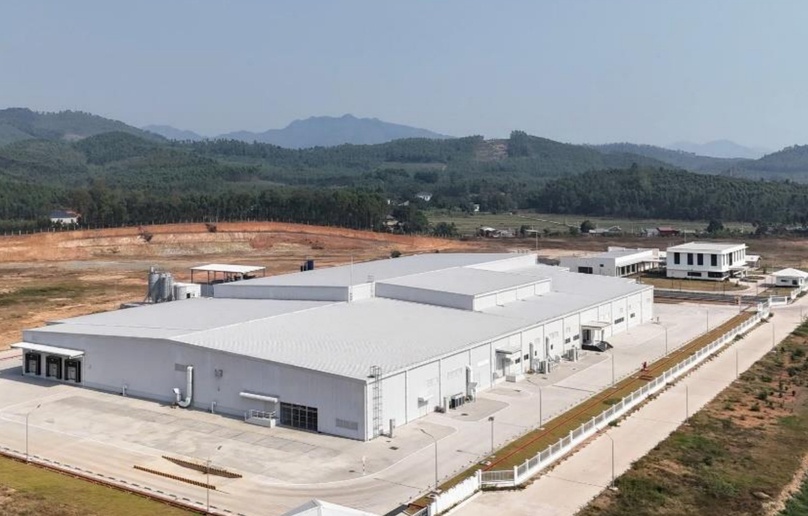VN firms invest in textile, dyeing
 |
| Workersat the Hue Textile and Garment Joint Stock Company. - VNA/VNS Photo Quoc Viet |
To avail themselves of business opportunities from the Trans-Pacific Partnership (TPP) agreement, many textile and garment firms have over the past two years started building textile and dyeing complexes. For instance, 10 enterprises have invested hundreds of millions of US dollars in those complexes in southern Binh Duong Province.
However, US President-elect Donald Trump said his country would leave the TPP but investment to those industrial complexes would still continue for long-term development strategies.
Esquel Garment Manufacturing Viet Nam Co Ltd has operated in Viet Nam for 10 years and mainly imported material from China. In 2015, the company invested in a textile and dyeing factory in Binh Duong partly for availing business opportunities from the TPP. The factory has completed construction of the building in the first stage and it will begin operations in a year.
With information emerging that the US could leave the TPP, the company would consider carefully its investment plans for the factory in the second and third stages.
However, Nguyen Van Luong, deputy general director of Esquel Garment Manufacturing Viet Nam, said the decision on investment was under the company’s long-term development strategy in Viet Nam but not only for TPP.
Textile and garment enterprises said that TPP has prompted them to increase investment in textile and dyeing for production of garment products. In the long-term, development of textile and dyeing would help Viet Nam complete its production process for garment products and avoid dependence on material imports as being done at present, VTV reported.
Meanwhile, Nguyen Xuan Duong, chairman of Hung Yen Garment Company said TPP would present more opportunities to local textile garment firms to export to the US, but if there was no TPP, exports to the US would have no effect.
During his election campaign, President-elect Donald Trump had said that if he won the elections the US would impose import tariff of 45 per cent on Chinese products. So, Duong said, garment producers who have investments in China could consider moving their business to other countries, including Viet Nam, to avoid high import tariff for products imported from China, the Dien dan Doanh nghiep newspaper reported.
Duong said that Viet Nam’s textile and garment exports next year would face many difficulties as expectations. Hung Yen Garment Company has signed contracts to produce garment for exports until March and April 2017.
He expected the company to receive more export orders after Tet (the Lunar New Year) festival to produce stable exports until October 2017.
According to the General Statistics Office, Viet Nam gained a year-on-year increase of 4.5 per cent in export value to US$21.5 billion for the first 11 months of this year.
This year, the nation expected to gain a total export value of textile and garment at around $29 billion.
What the stars mean:
★ Poor ★ ★ Promising ★★★ Good ★★★★ Very good ★★★★★ Exceptional
Latest News
More News
- Georgia: the right place to visit and invest (December 18, 2024 | 16:15)
- Quang Ngai’s incentives will lure in industrial investment (December 17, 2024 | 17:00)
- Dong Thap excited to hail investors to industrial zones (December 17, 2024 | 15:00)
- Dong Thap pushes on with crane conservation efforts (December 17, 2024 | 12:00)
- Wholesale upgrades drive Tien Giang goals (December 17, 2024 | 11:00)
- Investing channels worth attention (December 17, 2024 | 09:08)
- Proper mindset vital for serious investors (December 16, 2024 | 16:30)
- Market signals point to new openings for investment (December 16, 2024 | 12:09)
- Drivers remain strong for consumer sector (December 14, 2024 | 16:00)
- Decoding the variables shaping investments in 2025 (December 13, 2024 | 10:53)













 Mobile Version
Mobile Version